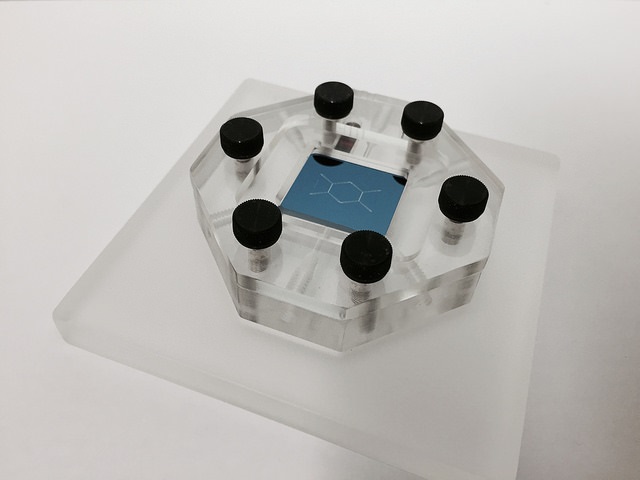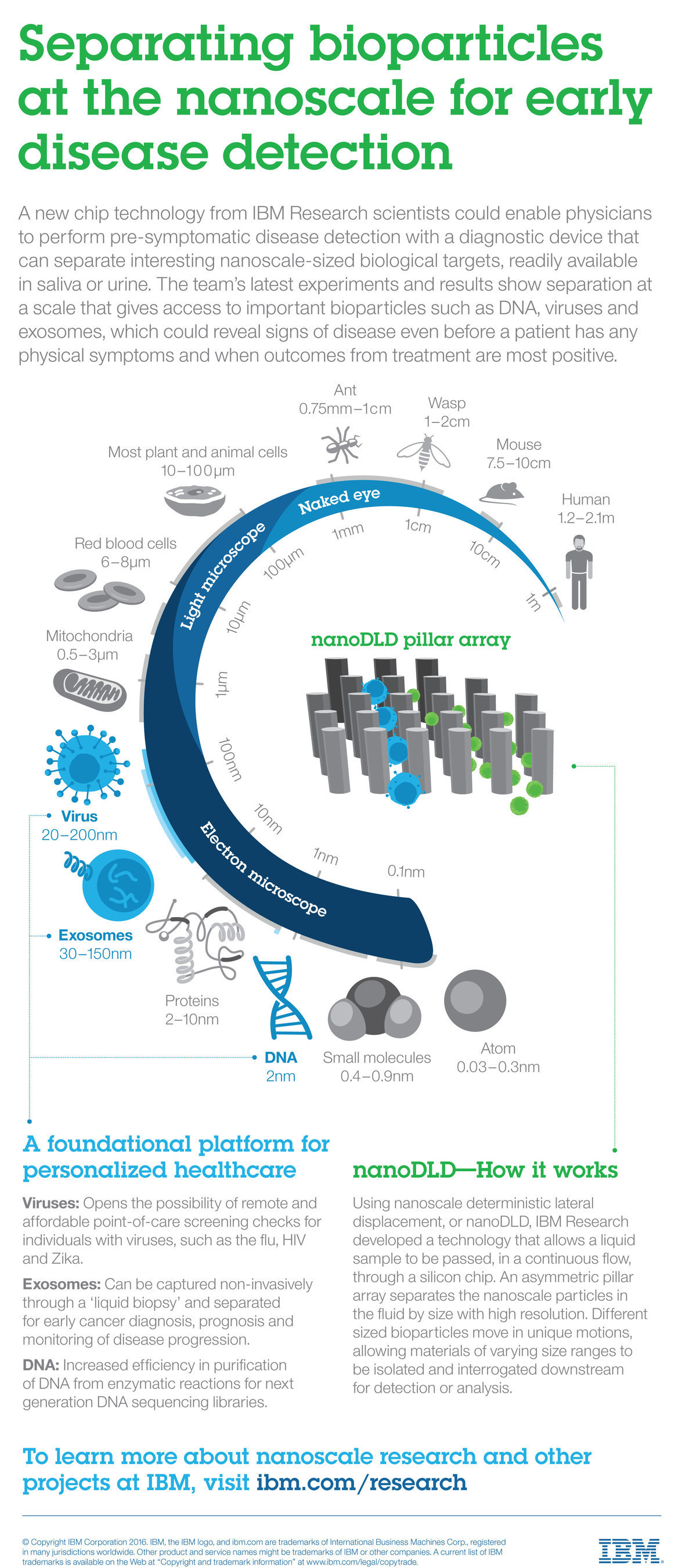IBM lab-on-chip tech can detect cancer before symptoms appear
IBM scientists have just made a major medical breakthrough with their new lab-on-a-chip technology that can, for the first time ever, separate biological particles at the nanoscale and could potentially let doctors detect diseases such as cancer before symptoms even appear.
The team’s results show size-based separation of bioparticles down to 20 nanometers (nm) in diameter, a scale that gives access to important particles such as DNA, viruses and exosomes. Once the particles are separated, they can be analyzed by physicians to potentially reveal signs of disease even before patients experience any physical symptoms — at a time when the outcome from treatment is most positive.

Until now, the smallest bioparticle that could be separated by size with on-chip technologies was about 50 times or larger, for example, separation of circulating tumor cells from other biological components.
IBM is now working with the Icahn School of Medicine at Mount Sinai to further develop this lab-on-a-chip technology and plans to test it on prostate cancer, the most common cancer in men in the U.S.
These days, exosomes are being viewed as useful biomarkers for the diagnosis and prognosis of malignant tumors since they are released in easily accessible bodily fluids such as saliva, urine or blood. They are becoming a valuable biomedical tool as they can be used for less invasive liquid biopsies to reveal the origin and nature of a cancer.
The IBM team targeted exosomes with their lab-on-chip technology. The particles range in size from 20-140 nm and contain information about the health of the originating cell that they come from. Their characteristics can provide essential information about the presence and state of developing cancer and other diseases.
IBM’s results proved that they could separate and detect particles as small as 20 nm from smaller particles, and now, with Mount Sinai’s help, IBM plans to confirm that their technology is able to pick up exosomes with cancer-specific biomarkers from patient liquid biopsies.
“The ability to sort and enrich biomarkers at the nanoscale in chip-based technologies opens the door to understanding diseases such as cancer as well as viruses like the flu or Zika,” said Gustavo Stolovitzky, Program Director of Translational Systems Biology and Nanobiotechnology at IBM Research. “This extra amount of time could allow physicians to make more informed decisions and when the prognosis for treatment options is most positive.”
Mount Sinai is hopeful that IBM’s technology will allow medical experts to track an individual’s state of health or progression of a disease.
“When we are ahead of the disease we usually can address it well; but if the disease is ahead of us, the journey is usually much more difficult. One of the important developments that we are attempting in this collaboration is to have the basic grounds to identify exosome signatures that can be there very early on before symptoms appear or before a disease becomes worse,” said Carlos Cordon-Cardo, MD, PhD, Chair of the Department of Pathology at the Mount Sinai Health System and Professor of Pathology, Genetics and Genomic Sciences, and Oncological Sciences at the Icahn School of Medicine. “By bringing togetherMount Sinai’s domain expertise in cancer and pathology with IBM’s systems biology experience and its latest nanoscale separation technology, the hope is to look for specific, sensitive biomarkers in exosomes that represent a new frontier to offering clues that might hold the answer to whether a person has cancer or how to treat it.”



Comments are closed, but trackbacks and pingbacks are open.